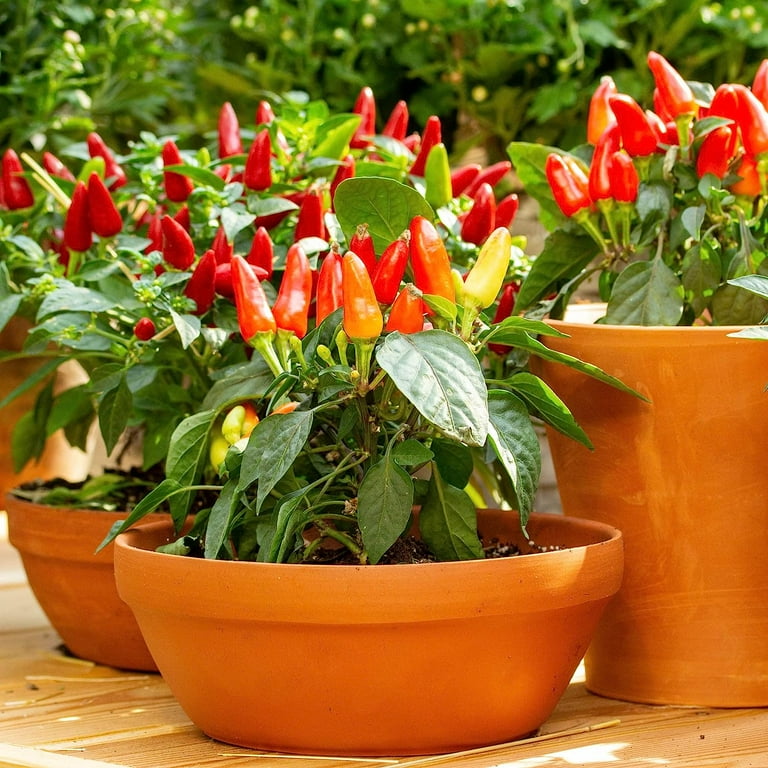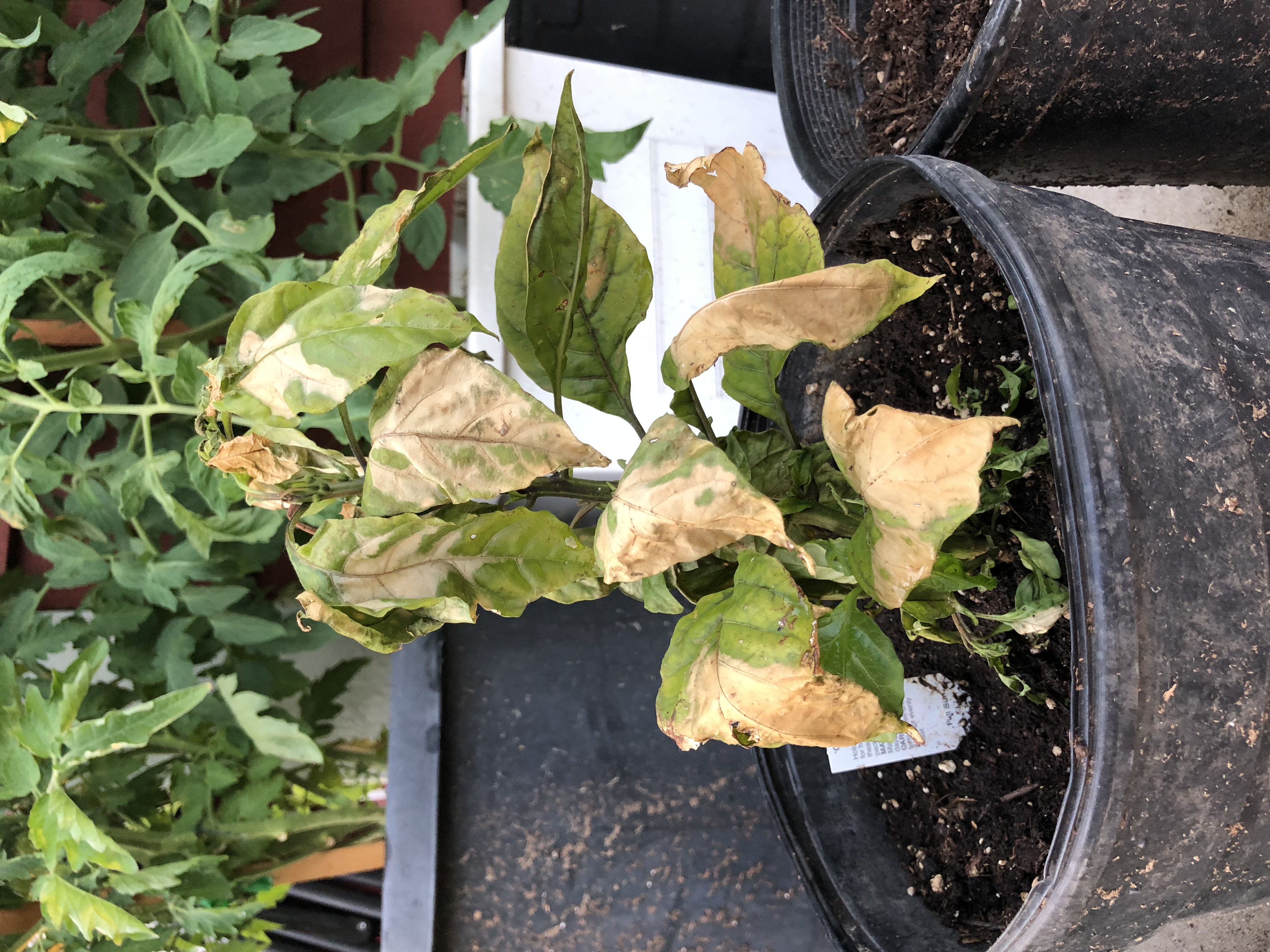Organic Vs. Synthetic Fertilizers: Which Is Best for Nurturing Healthy Pepper Plants?
In the realm of nurturing healthy and balanced pepper plants, the selection in between organic and artificial plant foods stands as an essential decision with far-reaching implications. While both alternatives aim to provide important nutrients to support plant growth, the subtleties of their effect on the soil, plant health and wellness, and the setting stimulate an argument that echoes throughout the horticulture neighborhood. Recognizing the distinctive advantages and possible risks of each fertilizer kind is essential for pepper growers looking for to optimize their returns while preserving an eco-conscious and sustainable technique.
Benefits of Organic Plant Foods
Organic fertilizers supply a sustainable and environmentally-friendly strategy to beneficial pepper plants, offering necessary nutrients without the use of artificial chemicals. These all-natural fertilizers are originated from natural sources such as garden compost, manure, bone dish, and algae, promoting dirt wellness and biodiversity. Unlike synthetic plant foods, organic alternatives launch nutrients slowly, ensuring a balanced and constant supply for pepper plants to flourish.
One substantial advantage of natural fertilizers is their capacity to improve soil framework and water retention. By boosting soil health and wellness, organic plant foods promote helpful microbial task, which aids in nutrient uptake by pepper plants. Furthermore, natural fertilizers minimize the threat of chemical run-off, safeguarding water resources from pollution and securing the setting.
Additionally, natural plant foods add to long-term dirt fertility by advertising the growth of helpful dirt organisms. These organisms assist damage down raw material, releasing nutrients in a type that is conveniently accessible to pepper plants. best fertilizers for peppers. By fostering a healthy and balanced soil ecological community, natural fertilizers support sustainable pepper farming techniques that benefit both plants and the environment
Drawbacks of Artificial Plant Foods
Artificial plant foods, as opposed to their organic equivalents, posture various drawbacks when made use of to nurture pepper plants, impacting both plant health and wellness and ecological sustainability. One major disadvantage of artificial fertilizers is their propensity to seep nutrients from the dirt quickly. This rapid leaching can result in nutrition discrepancies in the soil, triggering plants to experience shortages or toxicities. Furthermore, artificial fertilizers can hurt beneficial soil microorganisms, such as earthworms and advantageous bacteria, interrupting the soil community's balance.
Additionally, the overuse of synthetic plant foods can add to water pollution. Excess plant foods not taken in by plants can remove right into water bodies, resulting in eutrophication, where algae blossoms deplete oxygen degrees in the water, damaging water life. Artificial fertilizers are typically acquired from non-renewable sources, such as fossil fuels, adding to carbon emissions and ecological degradation throughout their production.
Nutrient Absorption Contrast
Efficient nutrient absorption plays an essential function in the overall wellness and growth of pepper plants. When comparing synthetic and natural fertilizers in terms of nutrient absorption, natural fertilizers have the advantage of providing a more balanced and slow-release source of nutrients (best fertilizers for peppers). Organic plant foods include a range of macro and micronutrients that are not just useful for the plants but additionally promote healthy dirt microbial task, which assists in nutrient uptake. On the other hand, artificial plant foods usually provide a fast launch of nutrients, resource which can bring about leaching and overflow, leading to lower nutrient absorption rates by the plants.
Moreover, natural plant foods boost dirt framework and water retention ability, enabling pepper plants to accessibility nutrients extra efficiently. This improved dirt quality facilitates root development, allowing much better nutrient absorption. Artificial plant foods, although at first improving plant development as a result of their high nutrient focus, might prevent long-term nutrient absorption by derogatory dirt wellness with time.
Ecological Effect Factors To Consider

On the various other hand, synthetic fertilizers, although often more focused and quickly available to plants, can have damaging effects on the setting if not applied correctly (best fertilizers for peppers). Their production needs high energy inputs, causing greenhouse gas emissions and adding to climate adjustment. Additionally, the runoff of excess artificial plant foods can pollute water sources, bring about eutrophication and hurting aquatic ecological communities.
Finest Fertilizer Practices for Peppers
When feeding pepper plants, maximizing nutrient uptake and minimizing environmental effect are vital considerations. To accomplish this, it is vital to adhere to best fertilizer methods tailored to the specific requirements of pepper plants. One vital technique is to perform a soil test before applying any type of plant foods. This examination can establish the pH degree of the soil this hyperlink and identify any nutrient deficiencies, directing you in choosing one of the most appropriate plant food solution.
Another essential method is to feed pepper plants at the correct time. Usually, peppers benefit from getting fertilizer at planting and after that once more when they begin to flower. Over-fertilizing can cause vitamins and mineral imbalances and harm the plants, so it is essential to adhere to advised application prices.
In addition, selecting a balanced fertilizer with an NPK ratio that suits pepper plants' needs is basic. Organic plant foods, such as garden compost or manure, can be exceptional options as they release nutrients slowly and boost dirt structure gradually. Synthetic plant foods can offer a quick nutrient increase when needed. Ultimately, incorporating organic and synthetic plant foods deliberately can assist nurture healthy and balanced pepper plants while decreasing ecological effect.
Verdict

Organic fertilizers use a lasting and environmentally-friendly technique to nourishing pepper plants, supplying important nutrients without the usage of artificial chemicals. Unlike synthetic plant foods, natural options launch nutrients gradually, guaranteeing a balanced and consistent supply for pepper plants to thrive.
Synthetic plant foods, in comparison to their natural counterparts, present numerous drawbacks when made use of to nurture pepper plants, impacting both plant health and wellness and ecological sustainability. When contrasting organic and synthetic fertilizers in terms of nutrient absorption, natural plant foods have the advantage of providing a much more well balanced and slow-release resource of nutrients.Additionally, organic fertilizers improve dirt structure and water retention capacity, enabling pepper plants to gain access to nutrients extra efficiently.
Comments on “Discover the Best Fertilizers for Peppers: Top Picks for Optimal Growth”